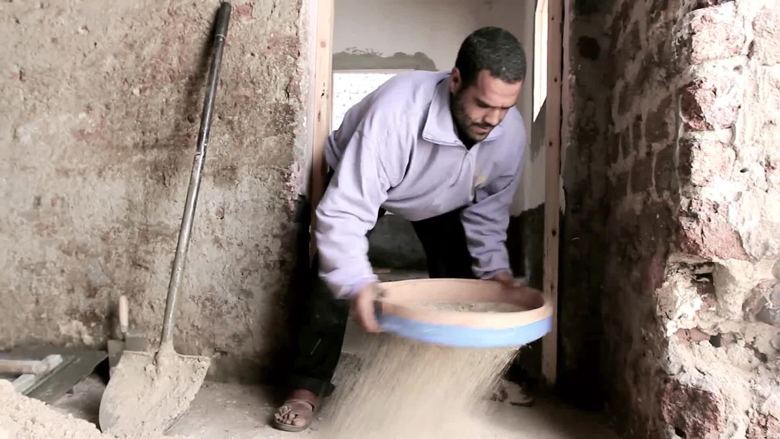The workshop was organized as part of the Emergency Employment Investment Project (EEIP), which is funded with a EUR 69.8 million grant by the European Union (EU) and administered by the World Bank. The project supports community projects, such as those that encourage better health and more literacy.
In addition, EEIP is supporting young people to gain access to jobs in the formal sector and create or improve businesses of their own. This component of the project is implemented by partner NGOs and is expected to help over 3,000 young people in some of Egypt’s poorest districts.
The goal of the 3-day workshop was to identify opportunities for rigorously evaluating the impact of SFD’s current and prospective grantees. It brought together 16 of Egypt’s largest NGOs working to promote youth employment, such as Nahdet El Mahrousa, the Misr El Kheir Foundation, and the Education for Employment Foundation.
The workshop also benefited from the participation of several university researchers who worked with the NGOs to identify suitable evaluation strategies.
“The NGOs funded by the Social Fund for Development are implementing a range of promising interventions to connect young people with wage- and self-employment opportunities,” said Medhat Massoud, head of the SFD’s central sector for Human and Community Development. “We want to learn from these projects and measure the real impact on the young people they are serving.”
Among the more than 180 youth employment programs in Egypt that are identified in the Global Youth Employment Inventory, compiled by several development partners, only 2% used robust impact assessments.
“We need to generate more and better knowledge about successful models to promote youth employment in Egypt,” said Kevin Hempel, a World Bank youth employment expert advising the program. “NGOs have a very important role to play in innovating and testing promising ideas, which can then inform policymaking at the national level,” he added.
The workshop itself was very well received. “It is crucial for us to learn more about what works and what doesn’t in improving youth employability,” said Mohamed El-Kamel, Managing Director at Alashanek Ya Balady Association for Sustainable Development, one of the NGOs participating in the workshop.
“Evidence-based lessons learned and best practices can inform NGO interventions and support the scaling up of employment initiatives, thereby contributing to reducing unemployment and poverty,” he added.
Moving forward, the SFD and the World Bank will select several of the interventions proposed for looking at the effectiveness of the NGOs, and provide them with the necessary assistance to conduct robust impact evaluations in partnership with a qualified team of researchers.
